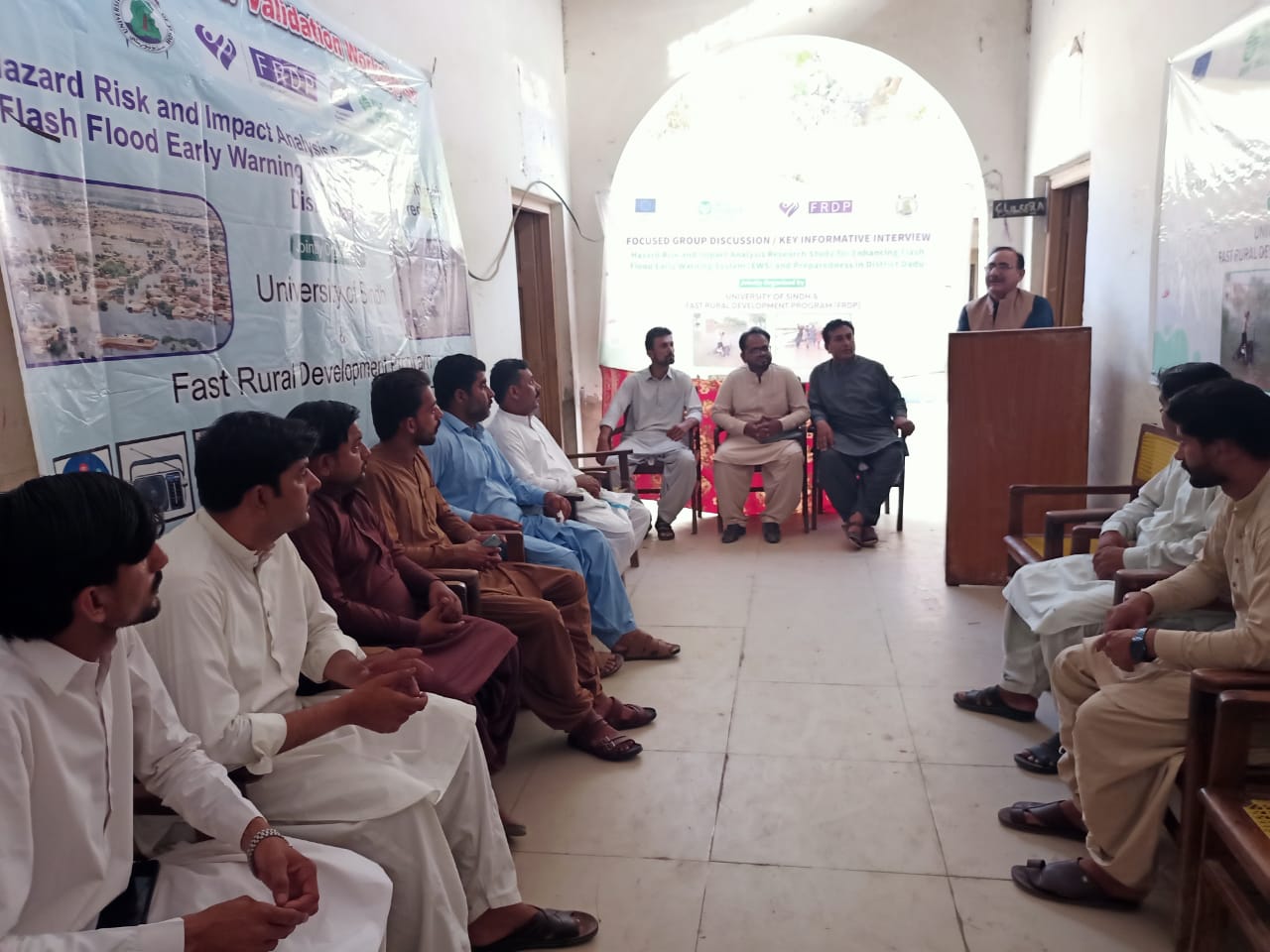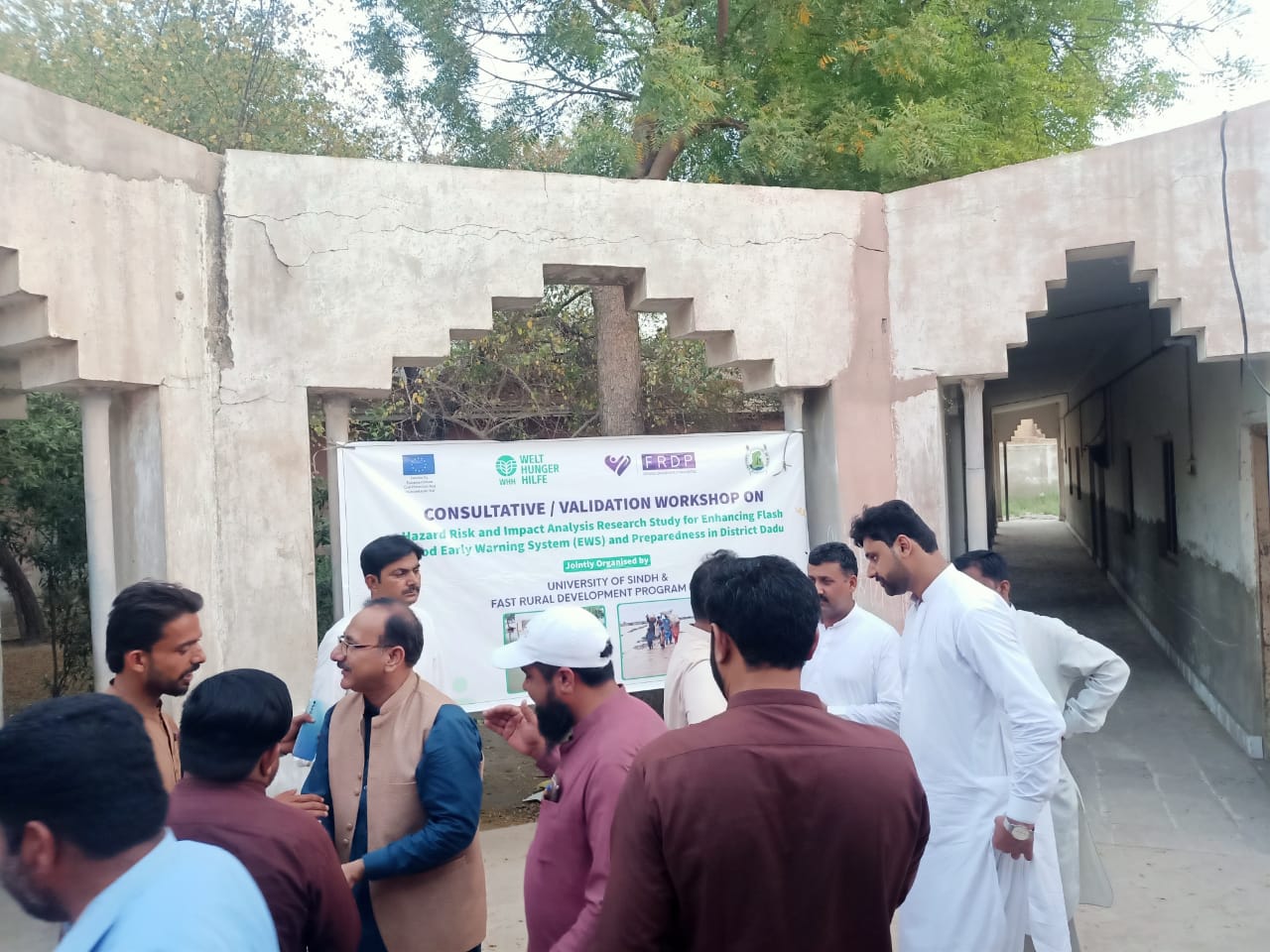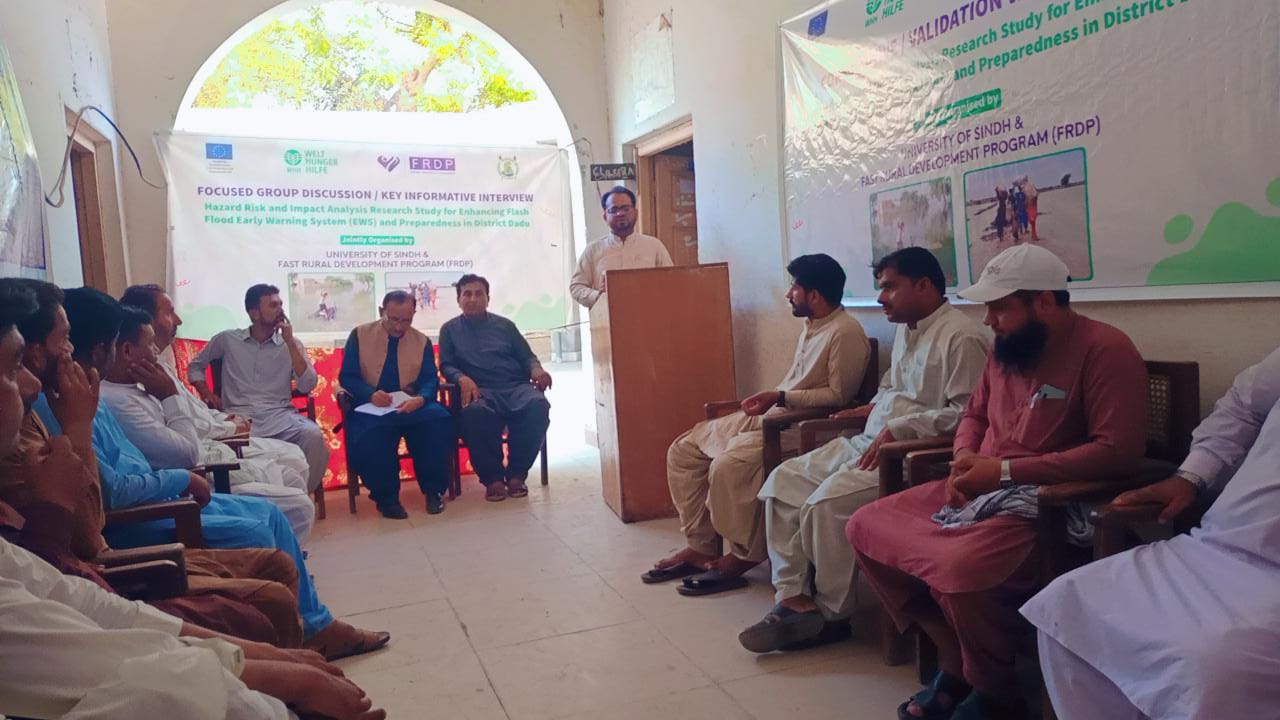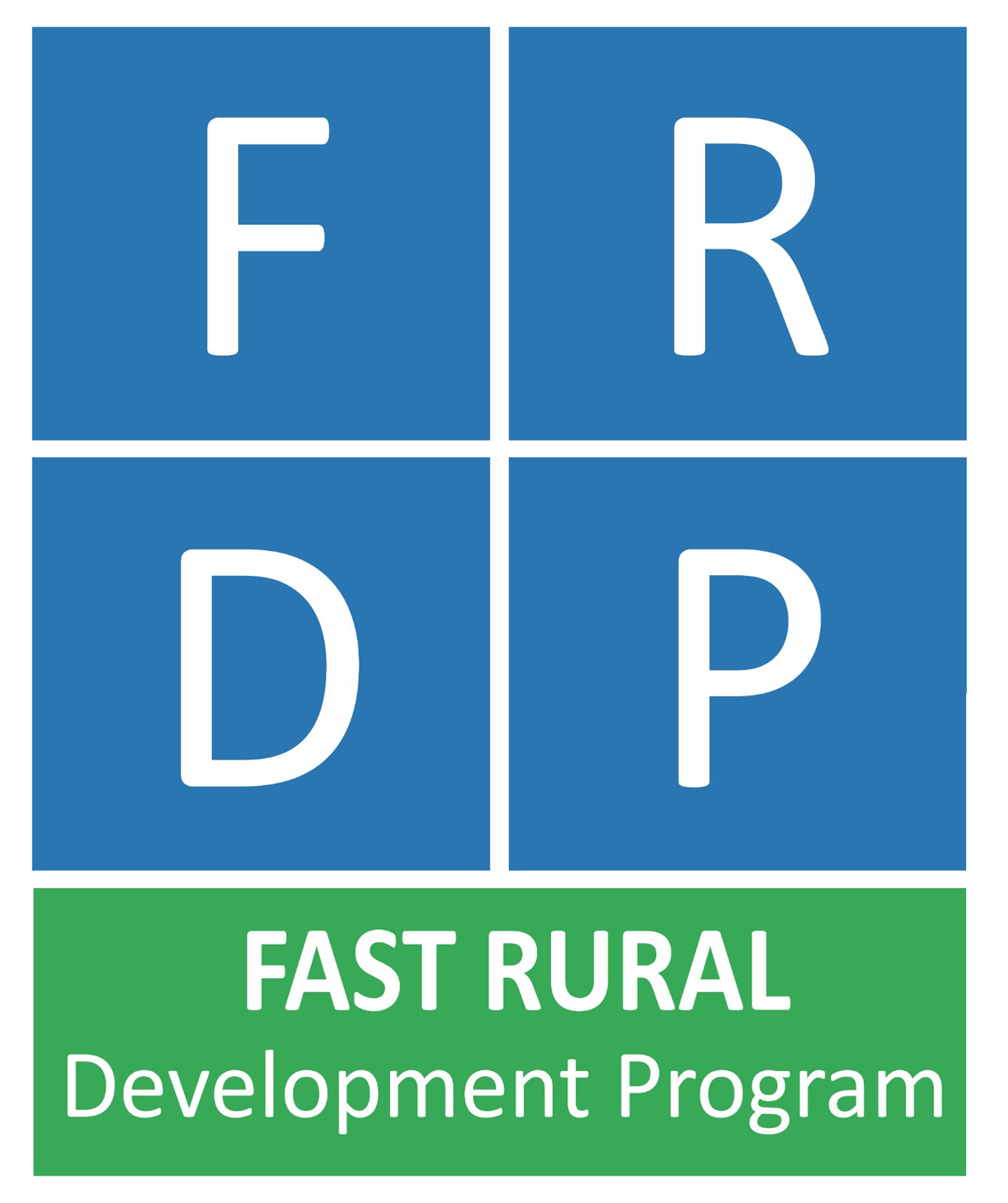
DADU: Scholars and representatives of various civil society organisations at a consultative workshop held here on Monday emphasised the urgency of putting an early warning system in place to protect vulnerable communities from loss of life and property through effective and extensive pre-disaster measures.
The workshop was organised jointly by the University of Sindh, Fast Rural Development Programme (FRDP), Welthungerhilife (WHH) and civil society of Mehar taluka.
They mainly focused on Dadu district that had suffered heavy losses and experienced massive relocation of people during and after the unprecedented rainfall and floods that hit Sindh in 2022.
The theme of the workshop was ‘Hazard risk and impact analysis for enhancing flash floods early warning system and preparedness in Dadu district’. It was presided over by SU’s Thatta campus Pro-Vice Chancellor Prof Dr Rafique Ahmed Memon.

Prof Dr Mukhtiar Ahmed Mahar briefed the participants about objectives of the workshop and highlighted possible consequences of a sudden change in climate; hazard risk of flash floods as a result; and proactive measures that should be taken by the authorities concerned.
Prof Dr Shah Pasand from Govt Degree College, Khairpur Nathan Shah, observed that the rural population of Dadu district was totally disappointed after the 2022 flood.
“The affected communities have not been compensated by government or any other organisation as yet, except for a few who were close to those in power,” he deplored.
Islamic Relief Pakistan (IRP) Area Manager Mujeebur Rehman stressed the need for organising training and awareness programmes at community level on proper dissemination of early warning messages as issued by reliable sources before imminent heavy rainfall, flood and other calamities.
Sindh Education Foundation representative Shoukat Ali Sodhar said that availability of a proper transportation system, like vehicles and boats, in vulnerable areas should be ensured by government for the evacuation of flood-affected people.
Prof Liaquat Ali Khand from UC Wahi Pandhi pointed out that Dadu district’s 60pc area is covered by mountains and arid zone while another 25pc has agricultural lands and livestock spaces. Hence, taking protective measures in the face of drought, rains and floods by government and local bodies was not very difficult, he said.
He wondered that no early warning system was in place to promptly inform and alert the district’s population about heavy rainfall, flood or some other upcoming disaster through a proper mechanism.
Farooq Ahmed Abbasi also noted that all communication networks, besides electricity, used to collapse as soon as strong winds and rainfall hit an area making it impossible to disseminate any message or information to vulnerable or affected population.
In his presidential address, SU’s Thatta campus Pro-VC Prof Dr Rafique Ahmed Memon said that in this age of science and technology, natural calamities must be dealt with in a scientific manner so that vulnerable population could be alerted well in advance and saved from being affected.
“This is not the case in our country. Measures are taken only after people are hit by calamities,” he lamented, and said that it was high time to follow developed countries and put early warning system in place for floods, cyclones and other such disasters.
He stressed that government should take pre-disaster measures to save vulnerable communities and their livestock.
Published in Dawn, May 14th, 2024



very hounrable staf